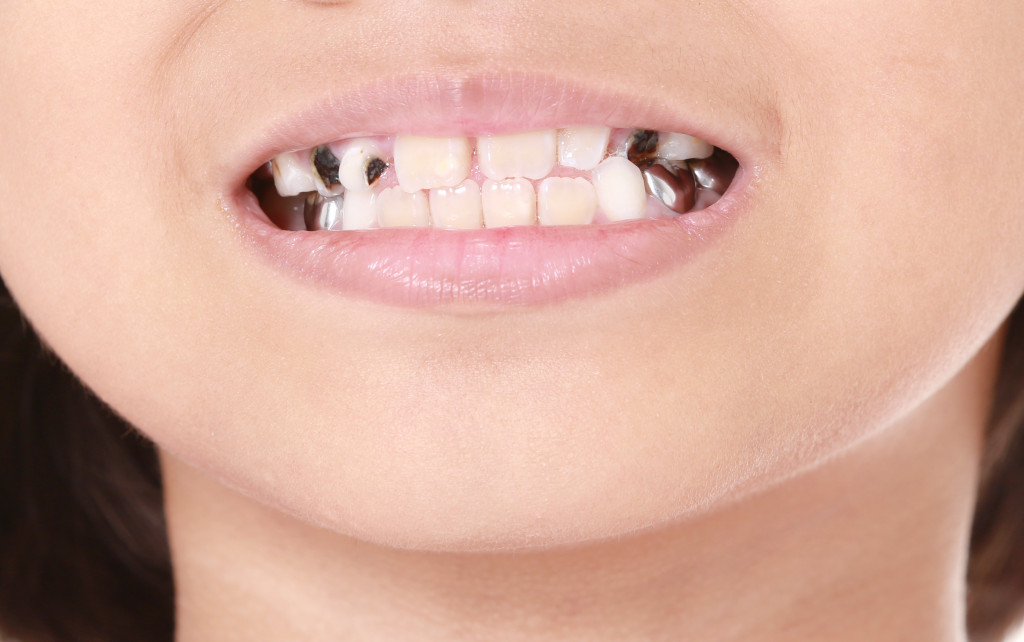Tooth decay is one of the most common dental problems. Statistics show that it affects over 90% of adults in the United States and is even more common among children. It can cause pain, infection, and tooth loss if left untreated. Unfortunately, it’s a problem that can’t be avoided entirely, but there are steps you can take to protect your teeth from further decay. This article will provide you with four tips on dealing with tooth decay’s aftermath.
1. Visit Your Dentist
Visiting your dentist as soon as possible after experiencing tooth decay is vital to help prevent further damage. Your dentist can assess the extent of the decay and recommend a plan of action to restore your teeth. This may involve fillings, crowns, root canals, and other treatments such as fluoride applications.
Your dentist may also be able to provide advice on how to maintain good oral hygiene. This includes brushing your teeth twice a day for two minutes and flossing regularly. They may recommend regular check-ups or preventive services such as professional cleanings, sealants, or fluoride treatments for those with chronic dental problems.
If you have any concerns about your teeth and gums health, don’t hesitate to contact your dentist for an appointment. During your visit, inform them of any medical conditions you may have that could impact the treatment plan they recommend. It is also essential to ask questions about what type of care will best help keep your smile healthy and bright.
2. Practice Good Oral Hygiene
After experiencing tooth decay, practicing good oral hygiene habits is essential to prevent further damage. Brush two times a day with fluoride toothpaste, floss daily and eat healthy foods low in sugar and carbohydrates. Also, use an antimicrobial mouthwash after brushing once daily to kill the bacteria that cause cavities.
It is also essential to refrain from using tobacco products as they can negatively affect dental health. This is because tobacco products can stain teeth, increase the risk of gum disease, and even lead to oral cancer.
In addition, your dentist may recommend additional treatments, such as sealants or fluoride treatments, to help protect your teeth from further damage. Sealants are plastic coatings applied to molars chewing surfaces, which can prevent plaque and bacteria from growing in those areas. Fluoride treatments can help to strengthen tooth enamel, making it more resistant to decay.
3. Avoid Sugary Foods and Beverages
Foods high in sugar and carbohydrates can increase the risk of developing cavities because they fuel the bacteria in your mouth, which produce the acid that wears away at your tooth enamel. Avoid sugary foods and beverages such as candy, soda, cake, and ice cream. Instead, opt for healthy snacks such as fruits and vegetables.
Moreover, it is essential to be aware of foods disguised as healthy snacks that still contain sugar. Examples of this include granola bars, fruit juices, and breakfast cereals. While these products may seem like a better alternative to candy and soda, they still contain high amounts of sugar that can damage your teeth. Limiting your consumption of dried fruits such as raisins, apricots, and dates is also essential. These products have a higher sugar content than fresh fruits and can quickly get stuck in the grooves of your teeth, leading to an increased risk for cavities.
4. Get Your Tooth Replaced
Dental replacement is a standard dental procedure to address tooth decay. It involves removing the damaged or decayed tooth and replacing it with a prosthetic one, such as an implant, crown, bridge, or denture. Depending on the extent of the decay, your dentist may suggest one treatment over another.
In the case of an implant, a titanium screw is surgically implanted into the jawbone and acts as a replacement for the root of the missing tooth. This is then topped off with a prosthetic crown that looks and functions like a natural tooth.
Crowns also go over existing teeth to help strengthen them if they are weak or at risk of breaking. Bridges are used when a gap between two teeth involves anchoring the prosthetic tooth to existing ones on either side. Lastly, dentures can replace multiple missing teeth using artificial materials that look like natural teeth.
In Closing
Dealing with the aftermaths of tooth decay can be difficult, but following these four tips can help you maintain good oral health. Be sure to visit your dentist regularly for check-ups and follow their advice on preventing further damage. With a bit of effort, you can ensure that your teeth stay healthy and strong.

